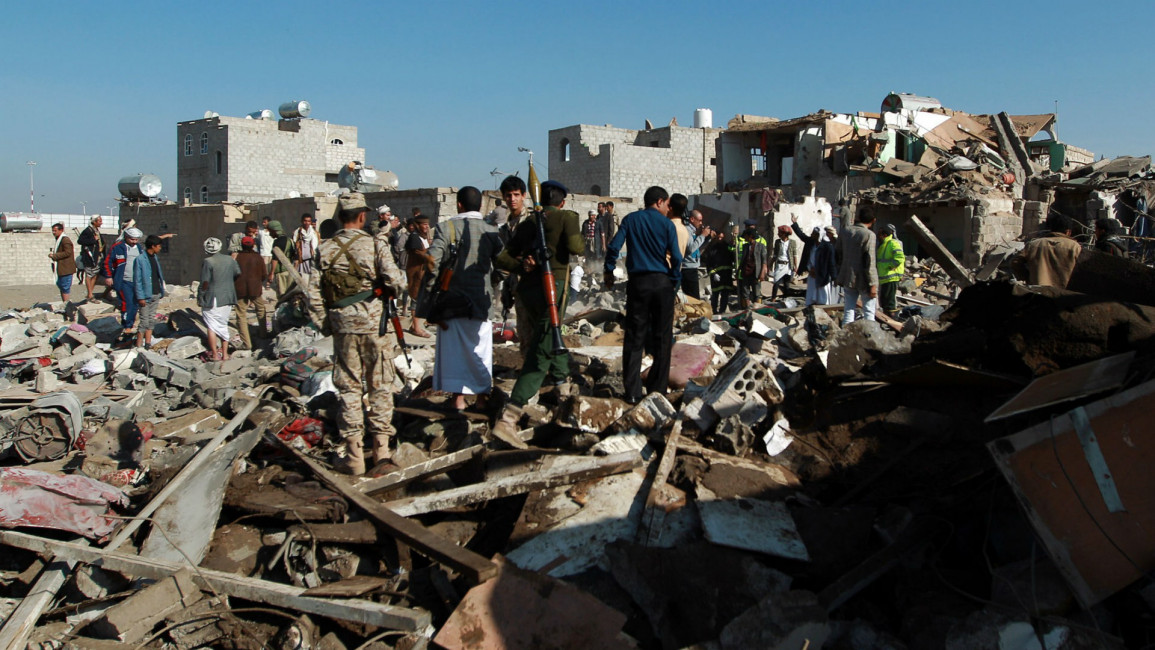
The EU's ineffective stance on the Yemen crisis
In a statement delivered on 26 March, Frederica Mogherini, High Representative of the Union for Foreign Affairs and Security Policy and Vice President of the European Commission, defended the Saudi-led air raids, saying they were triggered by the advance of the forces of the Ansar Allah movement (commonly known as the Houthis) and the targeting of President Abd-Rabbo Mansour Hadi's compound.
She also underlined the need for broad political consensus in the ongoing Yemeni crisis and said that military action cannot be a solution. Who wants another war in the region, after all?
Interestingly, the statement came on the same day as a Saudi Arabian-led coalition started a military campaign in Yemen, trying to push back the Houthi forces. The Houthis - adherants to the Zaydi branch of Shia Islam - gained control of Yemen's capital Sanaa in September 2014.
Saudi Arabia claims the Houthis are supported by Iran. Riyadh supports Hadi, who called for the intervention. Hadi, a former deputy to president Ali Abdullah Saleh, came into office in 2012 as the only presidential candidate after Saleh had to step down as a consequence of the uprisings that took place in Yemen during the Arab Spring. These uprisings were also joined by the Houthis. Now, however, Saleh and the Houthis appear to have made common cause.
The EU and the Arab Spring
In an article published last year by the Belgium-based branch of the global think tank, the Carnegie Group, the EU's role in reaction to the so called Arab Spring was described as mainly about making statements while failing to take actual measures.
The EU was seen as missing an important chance at a time when the Arab Spring was sweeping through the Arab world, deposing long-term autocrats. An updated version of the European Neighbourhood Policy (ENP) was adopted, promising political support. The new changes in the ENP focused on possible access to the EU market, enhanced mobility and financial assistance. (Yemen was not included in the ENP). In the Middle Eastern and North African political arena, however, the role of the EU remained de facto merely one of supporting actor.
Yemen and the EU
| The EU will continue to support all efforts to bring the Yemeni parties back to the negotiating table. -Christos Stylianides |
The relationship between the EU and Yemen is governed by a cooperation agreement. The EU is primarily involved in development cooperation or humanitarian aid in the country. According to a factsheet on Yemen published by ECHO, the European Commission's Aid and Civil Protection department has allocated 25 million euros for assistance to communities being affected by acute malnutrition, conflict and forced displacement. The EU's total funding for humanitarian assistance in Yemen amounted to 100.8 million euros in 2014.
The need for a political solution
In the foreign affairs council on 9 February, the EU reassured the Yemeni people of "its commitment to continue supporting Yemen in its transition." At the same time it called especially on the Houthis to restrain from violence. With the numbers of deaths amongst civilians rising constantly, a political solution away from military measures is urgently needed. The International Committee of the Red Cross will be trying to at least lessen the short-term needs of affected civilians, if exact conditions for the delivery of aid can be agreed on.
Meanwhile, the UK expressed its support for Saudi Arabia's King Salman for the military campaign in Yemen. The UK declared the actions taken by the Houthis would "lead to an escalation in terrorism and extremism enabling AQAP and ISIL to find a foothold in Yemen." It remains questionable if the Saudi-led military campaign is in fact the right way to deescalate the crisis. It might well drag Yemen into a proxy war between Iran and Saudi Arabia, fighting over their influence in the Arabian Peninsula.
In another statement, the High Representative, together with the Commissioner for Humanitarian Aid and Crisis Management Christos Stylianides promised: "The EU will continue to support all efforts to bring the Yemeni parties back to the negotiating table, on the basis of broad and inclusive participation, without preconditions and with the clear objective of reaching a sustainable political compromise."
The main role the EU can take at the moment seems to be a diplomatic one, issuing statements in support of peaceful negotiations and hopefully condemning the bombardment of Yemen.
Opinions expressed in this article remain those of the original author and do not necessarily reflect the opinions of al-Araby al-Jadeed, its editorial board or staff.




